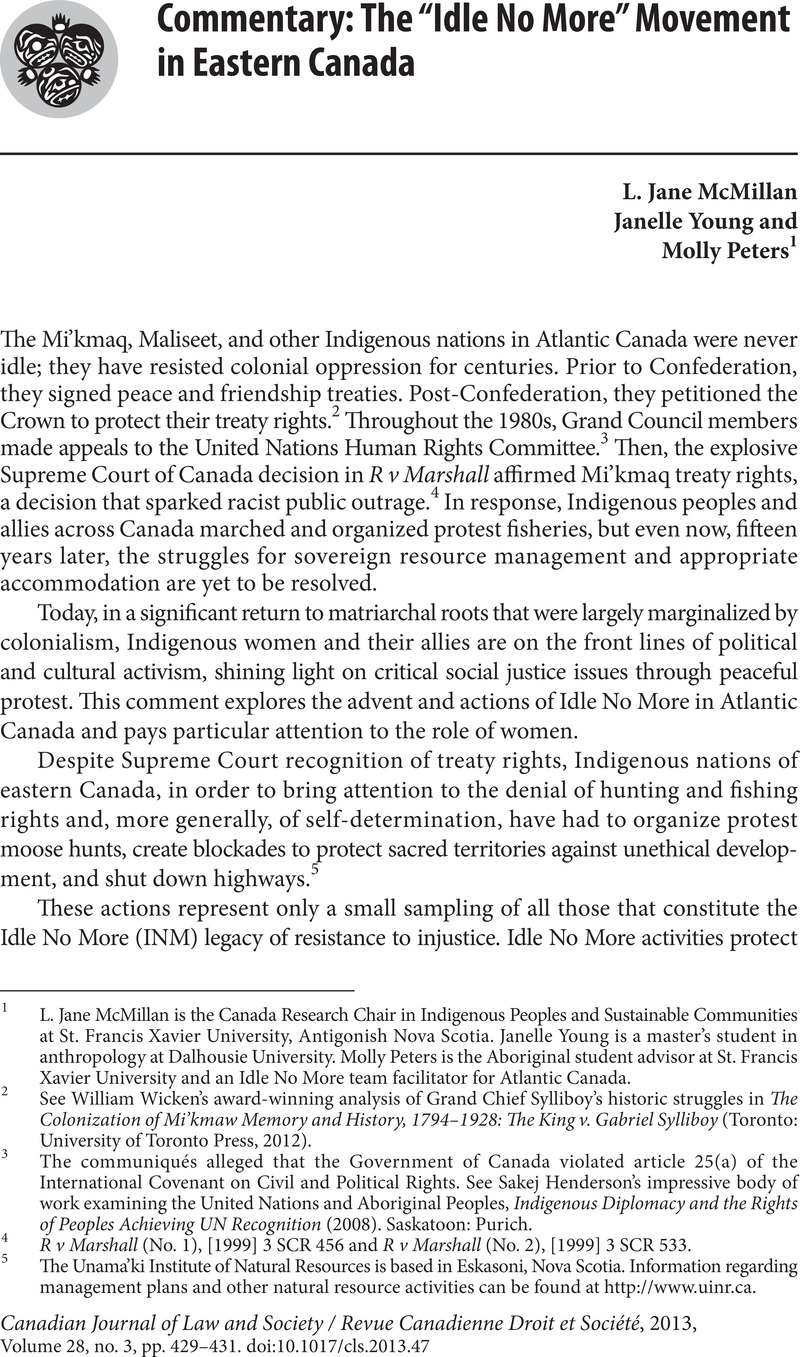Published online by Cambridge University Press: 07 October 2013

2 See William Wicken’s award-winning analysis of Grand Chief Sylliboy’s historic struggles in The Colonization of Mi’kmaw Memory and History, 1794–1928: The King v. Gabriel Sylliboy (Toronto: University of Toronto Press, 2012).
3 The communiqués alleged that the Government of Canada violated article 25(a) of the International Covenant on Civil and Political Rights. See Sakej Henderson’s impressive body of work examining the United Nations and Aboriginal Peoples, Indigenous Diplomacy and the Rights of Peoples Achieving UN Recognition (2008). Saskatoon: Purich.
4 R v Marshall (No. 1), [1999] 3 SCR 456 and R v Marshall (No. 2), [1999] 3 SCR 533.
5 The Unama’ki Institute of Natural Resources is based in Eskasoni, Nova Scotia. Information regarding management plans and other natural resource activities can be found at http://www.uinr.ca.
6 Tobique Malisset Nation Band members were never consulted and never agreed to the 1950 construction of a New Brunswick Power hydroelectric dam on their reserve. Members asked for exemption from paying electricity bills for all community members as compensation for the loss of salmon and medicinal plants as well as riverbank erosion caused by the dam. They did not receive this exemption. Anger over NB Power’s decision to deny electricity to elders galvanized the community into action. Organized by Tobique women, other members of the community, including men and children, took part in a 2008 blockade that prevented NB Power from accessing the dam. See Fawcett, Clare, Mathie, Alison & McMillan, Jane, “A Case Study of the Social Impacts of Economic Development in Tobique Maliseet Nation” in Aboriginal Measures for Economic Development (Halifax: Fernwood Press, 2012).Google Scholar
7 Miles Howe, “Hunger Strike Ends on Day 11, Made in Nova Scotia Process Halted,” Halifax Media Co-op, March 12, 2013, http://halifax.mediacoop.ca/story/hunger-strike-ends-day-11-made-nova-scotia-process/16720.